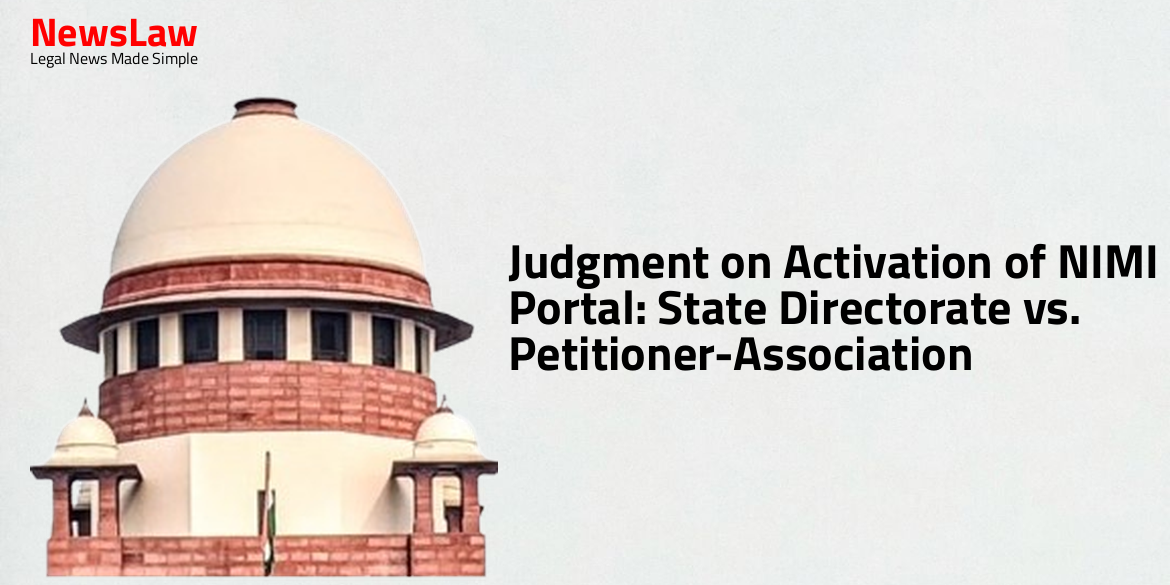In a recent legal case, the court emphasized the importance of transparency and accountability in tax administration. The focus was on the implementation of a Document Identification Number (DIN) system to prevent abuse by Departmental Officers. This summary highlights the court’s analysis of the need for enhanced transparency and accountability through the implementation of the DIN system in indirect tax administration.
Arguments
- The petitioner urges for the implementation of the Document Identification Number (DIN) system by all states to enhance transparency and accountability in tax administration.
- They argue that the DIN system can prevent abuse by Departmental Officers, such as pre-dating communications and ratifying actions.
- Reference is made to the Prime Minister’s directive to the Department of Revenue to protect honest taxpayers, leading to the Central Government’s decision to implement the DIN system for CBDT communications.
- The Ministry of Finance issued a press note in 2019 mandating the use of DIN in all CBDT communications from October 1, 2019.
- The petitioner emphasizes that the DIN system aligns with the government’s objective of promoting transparency and accountability.
- The Union of India agrees that implementing a system for electronic generation of a Document Identification Number (DIN) will enhance transparency and accountability in indirect tax administration.
- The Central Government implemented the DIN system for CBDT communications from 01.10.2019.
- Implementation of the DIN system for State Tax Officers’ communications is the responsibility of the concerned States.
- Only Karnataka and Kerala have currently implemented the DIN system in indirect tax administration.
- The GST Council, under Article 279A of the Constitution, can recommend and issue advisories to States for implementing the DIN system to bring transparency and accountability.
Also Read: Challenging Legal Presumptions in Negotiable Instrument Cases
Decision
- The writ petition is disposed by directing the Union of India/GST Council to issue advisory/instructions/recommendations to States for electronic generation of a DIN in indirect tax administration.
- States of Karnataka and Kerala are already implementing electronic generation of a DIN.
- States are urged to implement DIN for all communications from State Tax Officers to taxpayers and concerned persons for transparency and accountability.
- The writ petition is disposed with this directive.
Also Read: Legal Analysis of Admission Irregularities in Educational Institutions
Case Title: PRADEEP GOYAL Vs. UNION OF INDIA (2022 INSC 729)
Case Number: W.P.(C) No.-000320 / 2022



